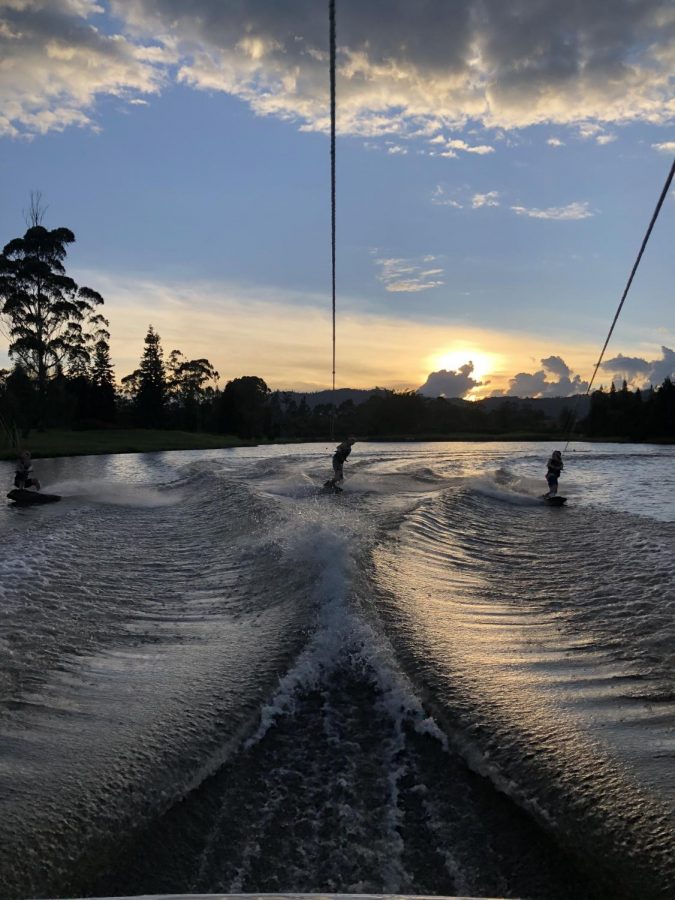From the Wake to the Trampoline
After a foot injury in November 2019 during a wakeboarding competition, I was finally looking forward to being ready for training again. Then, on March 24th, 2020, the government announced there was going to be a mandatory lockdown. This has left me stranded for seven months, without being able to touch the water with my board. It is the longest I have ever gone without practicing wakeboarding.
Even though training on the water was suspended there have been many ups and downs during these months, especially for wakeboarders. We have tried to maintain the rigor of an elite athlete during this time, but it has been extremely tough.
Challenges of quarantine for wakeboarders
No matter how wakeboarders train during quarantine, the bottom line is that training in water is completely different from training on land.
When it comes to training on the water a lot of us feel free and liberated when on our boards. The experience itself is not replicable on land because water is fluid and forgiving, as opposed to the hard nature of the ground. Additionally, on land there is no wake or boat where we can pull ourselves from and create tricks.
Training virtually has been the best option during the quarantine, but this comes with challenges for both the coaches and athletes. For the athlete, we are training by ourselves, trying our best to take proper videos and self-correct our own movements. For the coaches, not being able to be there physically and see what is happening has been hard. It makes it nearly impossible to provide feedback to their athletes.
“Using the different virtual platforms has been a struggle and not being able to see my athletes in person is hard to manage especially if someone is injured. Even giving feedback is not the same virtually as it is in person,” Natalia Marin, a fitness coach, said.
A day in the life of a high-performance athlete during the quarantine
As a high performing athlete in quarantine, I spend a minimum of three hours a day training, in order to maintain my health and physical form. At least two hours are spent on fitness and one hour is spent on physiotherapy.
On a daily basis, my training is based on maintaining my balance, tricks, and strengthening myself. With the help of a trampoline, I’m able to train by tying a rope to a nearby tree and using it as a simulation for the boat while I practice my tricks. Sometimes I use a board balanced on top of a tube to work on my balance and posture. These are just a few ways to keep me in good shape while out of the water. Being one of the first ranked wakeboarders in Colombia takes a lot of effort, especially during the quarantine.
“Quarantine has taken a lot of pressure from my shoulders, and all the expectations for getting better every time are gone and now I’m taking the sport in these times in a more fun way,“ Camila Ramirez, a fellow wakeboarder, said.
Benefits the quarantine has brought me as a high performing athlete
Although the quarantine has been difficult for wakeboarders, there are benefits that come along for athletes in this sport.
The national sports organization in Colombia, Coldeportes, responsible for helping athletes, has been crucial. They provide resources to the Colombian teams during the quarantine, which has helped athletes maintain their high performance in their sports by providing them with many health professionals to stay at a top-level.
Athletes have access to nutritionists, doctors, trainers, physical therapists, and coaches through virtual platforms to help them stay healthy because of Coldeportes. This has helped us stay in shape and to be ready for when the quarantine is over, and we can perform again.
“I am able to clear my mind during this time, relax, and take all the pressure off of myself from competition to train and be ready for when I go back on the water,” Ramirez said.




